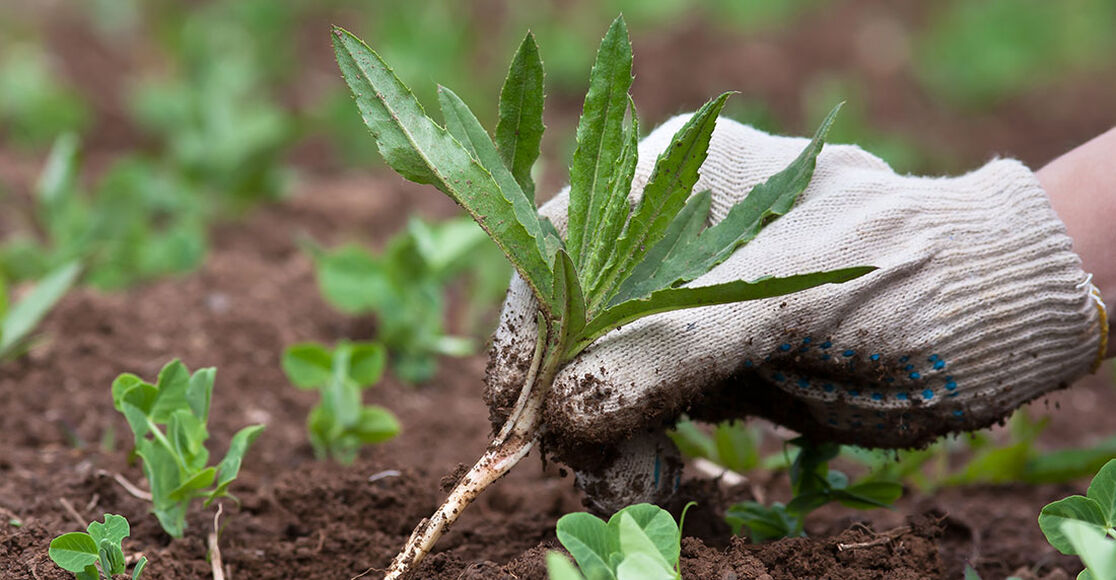Weeding is the bane of every avid gardener, especially when cultivating multiple beds of flowers, vegetables and herbs. Many individuals often find themselves unable to make time for daily weed removal, a challenge in keeping up with their rapid growth.
Luckily, there are steps you can take that naturally eliminate weeds without exposing your humans, pets and other yard foliage to toxic herbicides, pesticides and fungicides.
Smother Them
This method kills established weeds and prevents future growth in areas where you intend to plant. After removing the top growth, apply overlapped layers of cardboard, several dozen newspaper sheets or black plastic, and anchor the material(s) to the ground. Leave this in place for up to a full year to rid the area of weeds.
Mulch
By completely blocking sunlight from reaching the soil around plants, both organic and inorganic mulches prevent weed seedlings from growing, help keep soil moist and regulate soil temperature. There are different materials that can serve as mulch, depending on preference and available resources, including:
- Grass clippings: Apply clippings in thin layers, allowing each to dry, until the clippings are 3 or 4 inches thick. You can also dry the clippings in the sun before layering them.
- Tree bark: A thick layer (2 to 4 inches) of shredded or ground-up bark or a mixture of wood and bark chips provides attractive, long-lasting weed control and are slowest to decompose.
- Gravel, rocks and decorative stones: These materials make excellent permanent mulches for established flower beds. They're most effective at weed control when installed over landscape fabric or plastic sheeting.
- Rubber mulch: This material, typically made from recycled tires, is effective in suppressing weed growth and can help to retain soil moisture. Some garden centers offer rubber mulch in a variety of colors.
- Black plastic: This is typically used in vegetable gardens because it helps keep the soil warm in the spring, while efficiently preventing weed growth. It's available in rolls and easy to apply.
Finally, if you do prefer to remove weeds by hand, first water the area. Weeds (and their intact root systems) are easier to pull from the ground if the soil is moist.
